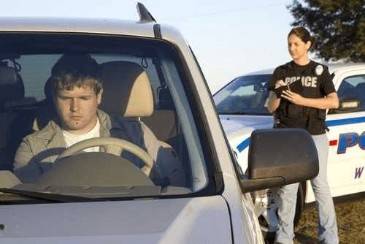 Being arrested and charged with driving under the influence of alcohol (DUI) in Maryland is a very serious and potentially life-changing occurrence. Because there are so many ramifications for someone facing DUI charges, it is important to understand what occurs during a DUI arrest. If police make mistakes or violate an arrestee’s rights, then it is possible that an experienced DUI defense attorney can have the charges completely dismissed or substantially reduced.
Being arrested and charged with driving under the influence of alcohol (DUI) in Maryland is a very serious and potentially life-changing occurrence. Because there are so many ramifications for someone facing DUI charges, it is important to understand what occurs during a DUI arrest. If police make mistakes or violate an arrestee’s rights, then it is possible that an experienced DUI defense attorney can have the charges completely dismissed or substantially reduced.
During a Maryland DUI traffic stop, police are required to follow a strict set of rules during all stages of the procedure.
- An officer must have a legitimate reason for pulling over an individual for suspicion of drunk driving. For example, unnecessary swerving, erratic lane changing, speeding or other dangerous operations of the vehicle can be considered valid reasons for a police officer to stop a driver for suspicion of DUI or DWI.
- Any and all field sobriety tests prior to an arrest are voluntary. A driver cannot be coerced into taking these tests, and can legally refuse to perform any field sobriety exercises. It is important to note, however, that, since field sobriety tests are meant to establish evidence that a driver is intoxicated, refusal to take these tests may be seen as sufficient grounds for an arrest.
- Many people complain that they were never given Miranda warnings when they were arrested for DUI. When placing drivers under arrest, an officer may read Miranda rights to the Defendant to advise that he/she is not required to answer any further questions which may be used in a court of law. However, in the case of a DUI or DWI arrest, most of the questions are asked before the suspect is in police custody so there is no legal obligation for the police officer to advise the person of his or her Miranda rights. Once in custody, if the officer asks a question without providing the Defendant the Miranda warnings, the response to the questions may be able to be suppressed in court.
- After an arrest, a suspect must be read his or her administrative rights to either take the breathalyzer test or to refuse. These rights are usually read at the time of arrest. The Defendant will then be taken back to the police station where a breath or blood alcohol test will be performed if agreed to by the defendant. Although you can refuse to take the breathalyzer test at the police station, failure to do so can result in an automatic driver’s license suspension of up to 120 days.
Any mistake made by police can be used in favor of the defendant during a DUI trial and can lead to a dismissal of the case. The Maryland incorrect police procedure attorneys at Albert Schreyer can apply their years of experience to your case and defend you from harsh penalties. For more information, call us at (301) 708-0819.
